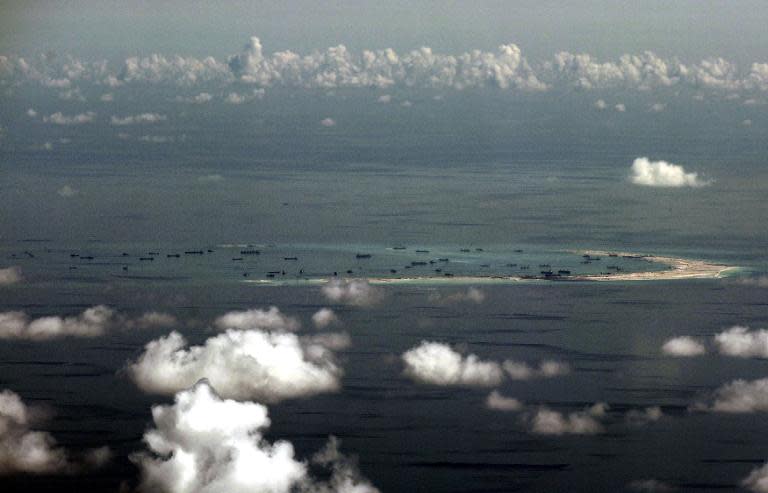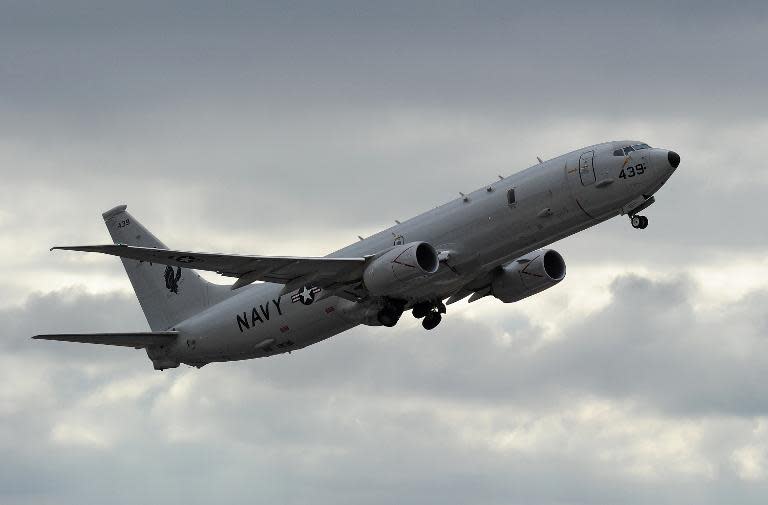China to project its military further and stronger
China said Tuesday it would project its military power further beyond its sea borders and more assertively in the air, defending the construction of artificial islands which sparked concern in Washington. The People's Liberation Army navy will put greater emphasis on "open seas protection" rather than "offshore waters defence" alone, the State Council or cabinet said in a white paper. At the same time the air force will shift focus "from territorial air defence to both defence and offence", it said. The army will increase its global mobility and artillery forces will strengthen capabilities for "medium and long-range precision strikes", it added. The paper was released with China and the US at loggerheads over Beijing's rapid island-building in contested parts of the South China Sea, which the country claims almost in its entirety. China on Friday declared that its military "drove away" a US surveillance aircraft flying near the artificial islands, after US media witnessed a tense radio exchange. A CNN television crew aboard a P-8 Poseidon plane heard the Chinese navy issuing eight warnings and American pilots replying in each case that they were flying through "international airspace". China has protested to Washington over the flight, calling it "highly irresponsible and dangerous" and warning that such actions could cause "unwanted incidents". Military spokesman Yang Yujun said Tuesday the island-building was "beneficial to the whole of international society" because it aided China's search and rescue efforts and environmental protection work. Official media also said Tuesday that China would build two 50-metre-tall lighthouses on reefs in the Spratly islands, which are also claimed by Vietnam and the Philippines. The facilities will be built on the Cuarteron and Johnson South reefs, the Xinhua news agency cited officials as saying. The latter saw a battle between the Chinese and Vietnamese navies in 1988. - 'Provocative actions' - Beijing has increased annual spending on its military -- the world's largest by personnel -- by double-digit annual percentages for several decades as it seeks to modernise its forces. It has focused on increasing naval power, commissioning its first aircraft carrier in 2012 and rapidly adding to its submarine and surface fleets. Several of its Asian neighbours, some also with claims in the South China Sea, have been alarmed by the military build-up, though Beijing insists that its investment is purely defensive. The white paper singled out the US's announced "rebalancing" towards Asia, and Japan's revision of some of its defence policies as objects of "concern". "Some external countries are also busy meddling in South China Sea affairs," it added. "A tiny few maintain constant close-in air and sea surveillance and reconnaissance against China." The increasing military presence in the area has raised fears of standoffs and potential clashes. Philippine President Benigno Aquino said on Monday that its military and commercial aircraft would keep flying over disputed areas despite Chinese warnings. China's foreign ministry spokeswoman Hua Chunying said on Tuesday his remarks showed the "restlessness and rashness of some people on the Philippine side". "Smaller countries must not take provocative actions ceaselessly and wilfully," she added. Beijing's white paper also said China's army would strengthen its online capabilities, after the US accused Chinese soldiers of cyber-hacking. "China will expedite the development of a cyber-force," the paper said, without providing details. China remains far behind the United States in military capacity and reach despite the recent increases in defence spending. Questions have been raised over the effectiveness of its fighting forces, with corruption thought to be widespread and several senior figures placed under investigation since President Xi Jinping came to power two years ago.




